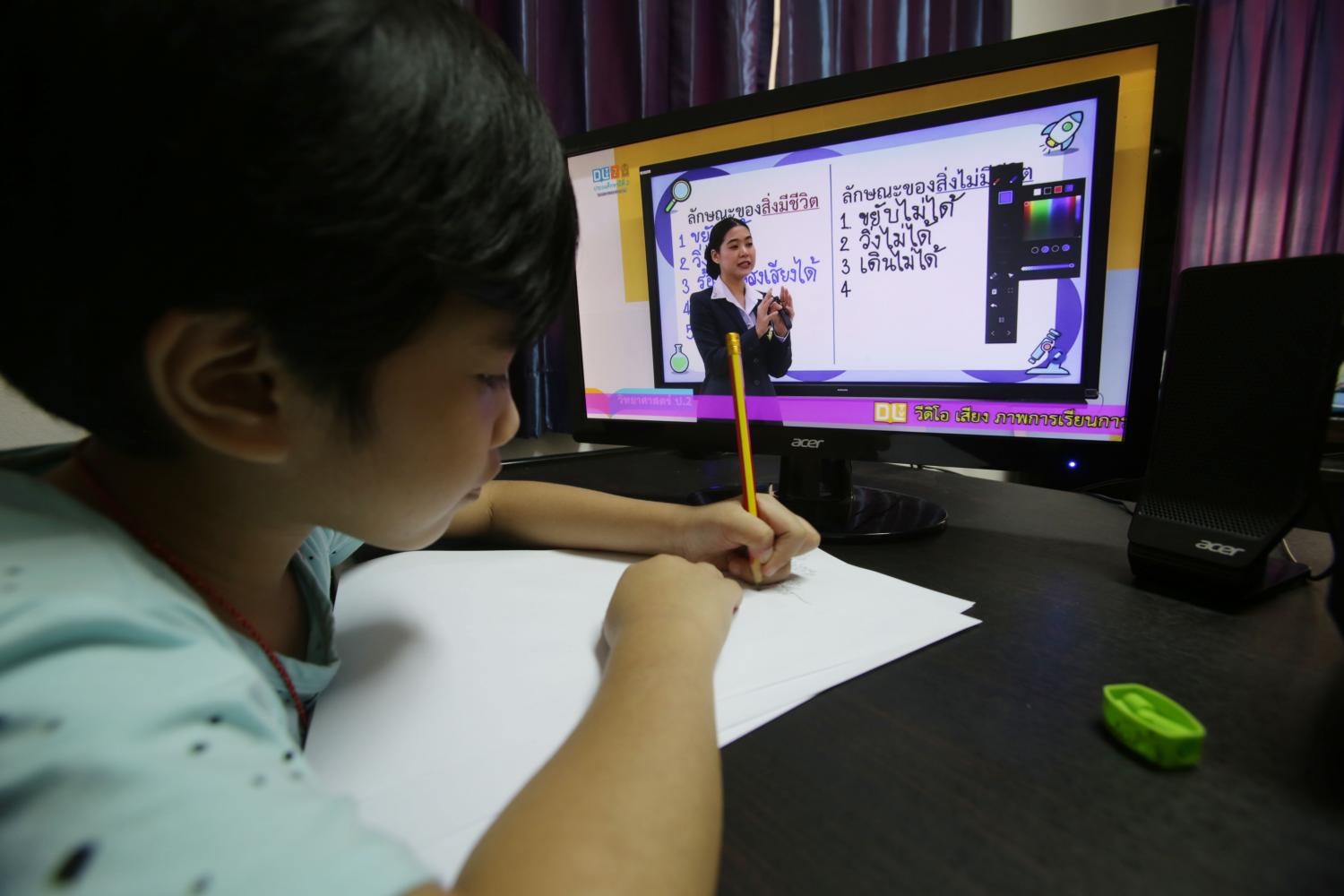
The rollout of state distance learning television (DLTV) and online classrooms got off to a bumpy start as children on Monday could not tune in to the broadcast, had no internet connection or were even led to online advertisements instead of school programmes.
The problems not only caused many families to get up early to set up their TVs and computers for nothing, but also caused doubts among some students who were earlier told their semester would begin on July 1. People also took to social media to vent, with the hashtag #เรียนออนไลน์ [online learning] ranking first on Twitter.
The day-long confusion led Prime Minister Prayut Chan-o-cha to clarify the distance learning programme, saying it is only intended to help deal with the "long wait" before schools reopen, government spokeswoman Narumon Pinyosinwat said on Monday.
The 2020 academic semester was supposed to begin on Monday, but the Covid-19 pandemic prompted the Education Ministry to postpone that date to July 1, fearing schools could serve as epicentres of virus transmission.
"We were only running an online teaching trial to prepare our students," Office of Basic Education Commission secretary-general Amnat Wichayanuwat said on Monday.
"It is not official teaching.''
Officials gave 1.5 months from May 18 to June 30 to organise distance learning for students of all levels. Kindergarten, elementary school and junior high school students are encouraged to keep abreast of their subjects on TV while senior high school can pursue their studies on the internet.
But that was impossible for Chari Mueangkhlongnoi, a mother of four in Chai Nat, who said her house has no computers, smart phones or internet.
"We have only one television," said Ms Chari.
Also her children are in different grades, meaning they cannot study at the same time. Her family also cannot afford to buy smart phones for all of the children.
A Mathayom 3 (Grade 9) student in Songkhla's Hat Yai district said he was eager to study at 8.30am, but when he turned on the TV channel for 9th graders, he was only greeted with commercial ads. The boy decided to shift platforms, going to his smart phone and then laptop.
"All I saw was a circle spinning as the page was loading," he said. "I waited for nearly one hour for nothing. My friends also faced similar problems."
Some families could access the online broadcast but, Sayan Bunsom, a parent in Narathiwat, said it was difficult for small children to concentrate.
Education Minister Nataphol Teepsuwan said officials prefer learning at schools, but they need to have a contingency plan in case it is still too dangerous to open them, as they are categorised in the red group with the highest risk of Covid-19 outbreak potential.
If such an outbreak occurs, online teaching will be a good alternative for teachers and students who can access the internet, he said. Schools with limited facilities may need to conduct class in small groups to comply with social-distancing guidelines, the minister said.
Thailand currently suffers from an education disparity gap, with only 400 schools fully capable of meeting all of the the state education policies, said Somphong Chitradap, a children's education expert at Chulalongkorn University's Faculty of Education.